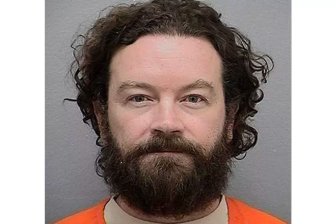The Town of Oliver has approved a nine-per-cent municipal tax increase to offset an anticipated rise in policing costs.

When municipalities surpass populations of 5,000 people, the local government is required to pay for 70 per cent of policing costs as opposed to 30 per cent.
Oliver expects to break that threshold after the next census in 2021.
The town is pursuing incremental tax increases in preparation for the anticipated dramatic increase in policing costs.
“If we waited the five years and did it all in one swoop it would be 54 per cent at once which we think would be just too huge of an impact in one blow, said Oliver Mayor Ron Hovanes.
“So what we’ve done, we’re sort of setting the stage as a council, we’re raising our municipal portion of our taxes by nine per cent.”
Oliver currently pays around $270,000 for policing. That is expected to rise to $900,000 in the year 2022.

Get daily National news
“We ratified our budget on Monday, and we’ve not had any pushback from our constituents so I think our taxpayers understand the direction that this council is going,” Hovanes said.
Meanwhile, the Town of Osoyoos is already grappling with rising policing costs.
The community’s population exceeded 5,000 in the 2016 census. Osoyoos appealed the census results, but when that failed, it begrudgingly signed the RCMP contract.
- B.C. judge rules plaintiffs did not do enough to identify hit-and-run driver
- B.C. family outraged at man with Stage-4 cancer’s 14-hour ER wait, discharge
- B.C. customers find packages discarded like ‘garbage’ when they are marked as delivered
- 16-year-old international student dies after North Vancouver collision
Osoyoos paid approximately $387,000 for policing in 2016.
This year, the town more than doubled its policing budget to $850,000.
Osoyoos Mayor Sue McKortoff called it an “unfair” and arbitrary system that results in higher taxes.
“We said to them, this doesn’t seem fair. Why did it go from 30 to 70 as soon as you go over 5,000,” she said. “Is there not a way to do it incrementally, change it, and obviously they agree that should be the way it is, but it isn’t that way yet.”
It doesn’t appear that there will be a reprieve for the towns.
A statement from the Ministry of Public Safety and Solicitor General said, “Canada was clear in the last negotiations that they would not modify the costs share.”
An official noted an alternative option – a municipality could establish its own police force, but that would require the town to cover 100 per cent of policing costs.
“So these municipalities not only benefit from sharing some costs with the federal government,” the official said.
“They also continue to enjoy the benefits of provincially-funded integrated policing and police infrastructure support such as the Combined Forces Special Enforcement Unit of British Columbia (CFSEU-BC).”








Comments